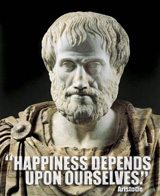Life
The Hide and Seek Of Happiness – Where To Look and How To Find It

I just finished watching the film, ‘The Bucket List’, one of my all time favourite, feel-good movies. Not only do I like the entertaining duo of Morgan Freeman the benevolent, wise soul and Jack Nicholson, who has the alacrity of a 5 year old, but I also like the significance of the film. ‘Our quest in life’. I think we all spend our lives on a quest. Osho referred to life as a quest and not a question, maybe a quest for meaning, for love, perhaps an esoteric piece of wisdom and for many … the quest for happiness.
There’s a scene in The Bucket List where Nicholson reads the letter Freeman wrote him, where he says, ‘find the joy in your life.’
FIND THE JOY. How do we define joy? Is a large portion of our lives spent on the attainment of happiness and is it sustainable? Happiness is an emotion, a mood, a feeling, and a dynamic state. It isn’t a destination we miraculously arrive at, it’s about cultivating moments’ of joy throughout the journey, and most importantly … happiness is a decision. It’s derived from intrinsic motivation. If we’re continually questioning when we’ll find happiness, and what exactly will create that happiness, then we’re depending on external factors and therefore not being accountable for our own lives.
 The Greek philosopher Aristotle, devoted his research to the study of happiness. Aristotle questioned the meaning of life and the purpose of human existence suggesting that happiness was the fundamental motivator. He related it to virtue and attainment for the greater good, as opposed to individualistic gain and defined virtue as maintaining the median. Artistotle’s theory is comparable to the Buddhist philosophy of the ‘middle path’ or the ‘middle way’, which is concerned with the balance between hedonism and abstinence.
The Greek philosopher Aristotle, devoted his research to the study of happiness. Aristotle questioned the meaning of life and the purpose of human existence suggesting that happiness was the fundamental motivator. He related it to virtue and attainment for the greater good, as opposed to individualistic gain and defined virtue as maintaining the median. Artistotle’s theory is comparable to the Buddhist philosophy of the ‘middle path’ or the ‘middle way’, which is concerned with the balance between hedonism and abstinence.
Buddhists also advocate that contentment is a more achievable state than happiness. If we reflect on the catalysts in our lives that have generated happiness, buying a new car, passing an exam, falling in love to name a few examples, I’m sure we would discover these states are temporary, impermanent and therefore … unsustainable.
In her article ‘Being Happy’, Doctor Charmaine Saunders provides three main tips for attaining happiness which include, conquering your fears, what she refers to as ‘looking for the gem’ and seeing the magic. Dr Saunders posits that our fear stifles many aspects of our life and that instead looking for the positives is a surer way to happiness.
In 1972, Bhutan’s fourth King Jigme Singye Wangchuck, coined the phrase Gross National Happiness (GNH) to demonstrate his commitment in developing a nation established on Buddhist principles. This concept was later developed by Kara Ura The Director of the Centre for Bhutan Studies, to holistically measure the quality of national well-being.
The research concluded that the factors contributing to individual and therefore collective happiness included, the work-life balance, good governance, sustainable socio-economic development, cultural preservation, and environmental conservation and has since been adopted by various other leading nations. It seems the quest for happiness is now a global phenomenon.
The path to a more content life
Healthy mind, healthy body
There is an old expression which refers to a healthy body in a healthy mind – Mens sana in corpore sano. I promote the regular exercise, balanced diet theory, however, I’m also an advocate for holistic health and feel that if we are in a continual state of stress and anxiety, we don’t possess the motivation to eat, eat nutritiously, cook or to engage in exercise. Our eating patterns become irregular, we crave for foods containing high quantities of sugar, salts and starch, sleep routines become disrupted and irregular and we don’t possess the impetus to exercise or even socialise. These factors can contribute to severe mental health issues including depression, anxiety disorders and a range of physical conditions.
Constant worry, stress, fatigue and physical ailments, may be an indication that you need to reassess key relationships, career, and seeking the guidance and support of a health professional, to implement changes to your lifestyle, which leads me to my next point …
A balanced lifestyle
‘All work and no play makes Jack a dull boy …’ another cliché or perhaps another universal truth? With rapid globalisation and technological advancement, human beings are in a constant state of flux. Work demands, financial obligations and family commitments are common stressors which can affect our quality of life. Happiness is about maintaining the balance between the physical, emotional, and spiritual.
Sufficient rest, exercise and a balanced, healthy diet are essential, as well as discovering a talent, hobby, enrolling in a course, learning to meditate or practicing yoga, however, make sure you engage in activities and, with people you feel enhance your life, and contribute to it positively. Whatever you choose to do and whomever you choose to do it with, just remember that everything in life is interconnected, and occurs in duality, there are always seeds of hope in despair and fear at it’s best is inspiration, it is up to us to create the balance.
A Bucket List
If you haven’t all ready, I would strongly recommend you rent the film ‘The Bucket List’. If anything at all, I’m sure you will at least take away with you, the courage to convert your fears and create your own bucket list. Find half an hour to sit down somewhere quiet and start creating your list. Perhaps there are things you have always wanted to do but have always deterred yourself because instead, you listen to that little voice inside your, or perhaps to that little nagging voice of others. Maybe you have always had the support of others but have never had the self-belief and confidence.
Drown out the inner noise and that voice of others and … just write it. Once you have written your list, it might also require further planning, for example, if your list contains goals that involve finances, such as travel, or a specific allocation of time, like a course of study. Don’t forget to specify your short, mid and long term goals, a time frame and additional considerations to achieve the outcome.
You have nothing to lose and everything to gain, it’s all an experience and it’s how you reframe that experience which determines the ‘real’ outcome.
To quote my Mum, who always adopts a positive approach to life ‘don’t be afraid of succeeding!’ I questioned her, thinking she made an error, and that what she meant to say was ‘don’t be afraid of failing’, but she assured me, that, ‘don’t be afraid of succeeding’ was precisely, what she meant to say.
Enjoy the journey …
Did You Know
How Skilled Migrants Are Building Successful Careers After Moving Countries
Behind every successful skilled migrant career is a mix of resilience, strategy, and navigating systems built for locals.

Moving to a new country for work is exciting, but it can also be unnerving. Skilled migrants leave behind familiar systems, networks, and support to pursue better job opportunities and a better future for their families. (more…)
Life
10 Research-Backed Steps to Create Real Change This New Year
This New Year could finally be the one where you break old patterns and create real, lasting change.

Every New Year, we make plans and set goals, but often repeat old patterns. (more…)
Life
9 Harsh Truths Every Young Man Must Face to Succeed in the Modern World
Before chasing success, every young man needs to face these 9 brutal realities shaping masculinity in the modern world.

Many young men today quietly battle depression, loneliness, and a sense of confusion about who they’re meant to be.
Some blame the lack of deep friendships or romantic relationships. Others feel lost in a digital world that often labels traditional masculinity as “toxic.”
But the truth is this: becoming a man in the modern age takes more than just surviving. It takes resilience, direction, and a willingness to grow even when no one’s watching.
Success doesn’t arrive by accident or luck. It’s built on discipline, sacrifice, and consistency.
Here are 9 harsh truths every young man should know if he wants to thrive, not just survive, in the digital age.
1. Never Use Your Illness as an Excuse
As Dr. Jordan B. Peterson often says, successful people don’t complain; they act.
Your illness, hardship, or struggle shouldn’t define your limits; it should define your motivation. Rest when you must, but always get back up and keep building your dreams. Motivation doesn’t appear magically. It comes after you take action.
Here are five key lessons I’ve learned from Dr. Peterson:
-
Learn to write clearly; clarity of thought makes you dangerous.
-
Read quality literature in your free time.
-
Nurture a strong relationship with your family.
-
Share your ideas publicly; your voice matters.
-
Become a “monster”, powerful, but disciplined enough to control it.
The best leaders and thinkers are grounded. They welcome criticism, adapt quickly, and keep moving forward no matter what.
2. You Can’t Please Everyone And That’s Okay
You don’t need a crowd of people to feel fulfilled. You need a few friends who genuinely accept you for who you are.
If your circle doesn’t bring out your best, it’s okay to walk away. Solitude can be a powerful teacher. It gives you space to understand what you truly want from life. Remember, successful men aren’t people-pleasers; they’re purpose-driven.
3. You Can Control the Process, Not the Outcome
Especially in creative work, writing, business, or content creation, you control effort, not results.
You might publish two articles a day, but you can’t dictate which one will go viral. Focus on mastery, not metrics. Many great writers toiled for years in obscurity before anyone noticed them. Rejection, criticism, and indifference are all part of the path.
The best creators focus on storytelling, not applause.
4. Rejection Is Never Personal
Rejection doesn’t mean you’re unworthy. It simply means your offer, idea, or timing didn’t align.
Every successful person has faced rejection repeatedly. What separates them is persistence and perspective. They see rejection as feedback, not failure. The faster you learn that truth, the faster you’ll grow.
5. Women Value Comfort and Security
Understanding women requires maturity and empathy.
Through books, lectures, and personal growth, I’ve learned that most women desire a man who is grounded, intelligent, confident, emotionally stable, and consistent. Some want humor, others intellect, but nearly all want to feel safe and supported.
Instead of chasing attention, work on self-improvement. Build competence and confidence, and the rest will follow naturally.
6. There’s No Such Thing as Failure, Only Lessons
A powerful lesson from Neuro-Linguistic Programming: failure only exists when you stop trying.
Every mistake brings data. Every setback builds wisdom. The most successful men aren’t fearless. They’ve simply learned to act despite fear.
Be proud of your scars. They’re proof you were brave enough to try.
7. Public Speaking Is an Art Form
Public speaking is one of the most valuable and underrated skills a man can master.
It’s not about perfection; it’s about connection. The best speakers tell stories, inspire confidence, and make people feel seen. They research deeply, speak honestly, and practice relentlessly.
If you can speak well, you can lead, sell, teach, and inspire. Start small, practice at work, in class, or even in front of a mirror, and watch your confidence skyrocket.
8. Teaching Is Leadership in Disguise
Great teachers are not just knowledgeable. They’re brave, compassionate, and disciplined.
Teaching forces you to articulate what you know, and in doing so, you master it at a deeper level. Whether you’re mentoring a peer, leading a team, or sharing insights online, teaching refines your purpose.
Lifelong learners become lifelong leaders.
9. Study Human Nature to Achieve Your Dreams
One of the toughest lessons to accept: most people are self-interested.
That’s not cynicism, it’s human nature. Understanding this helps you navigate relationships, business, and communication more effectively.
Everyone has a darker side, but successful people learn to channel theirs productively into discipline, creativity, and drive.
Psychology isn’t just theory; it’s a toolkit. Learn how people think, act, and decide, and you’ll know how to lead them, influence them, and even understand yourself better.
Final Thoughts
The digital age offers endless opportunities, but only to those who are willing to take responsibility, confront discomfort, and keep improving.
Becoming a man today means embracing the hard truths most avoid.
Because at the end of the day, success isn’t about luck. It’s about who you become when life tests you the most.
Change Your Mindset
The Four Types of Happiness: Which One Are You Living In?
Most people chase success only to find emptiness, this model reveals why true happiness lies somewhere else.

In a world driven by rapid technological growth and constant competition, many people unknowingly trade joy for achievement. (more…)
-

 News2 weeks ago
News2 weeks agoBrandon Willington Builds 7-Figure Business by Ignoring Almost Everything
-

 Health & Fitness2 weeks ago
Health & Fitness2 weeks agoWhat Minimalism Actually Means for Your Wellness Choices
-

 Did You Know2 weeks ago
Did You Know2 weeks agoWhy Most Online Courses Fail and How to Fix Them
-

 Business2 weeks ago
Business2 weeks agoIf Your Business Internet Keeps Letting You Down, Read This
-

 Business5 days ago
Business5 days agoEntrepreneur’s Guide to Pay Stubs: Why Freelancers and Small Business Owners Need a Smart Generator
-

 Business3 days ago
Business3 days agoThe Simple Security Stack Every Online Business Needs
-

 Finances3 days ago
Finances3 days agoWhy Financial Stress Is One of the Biggest Barriers to Personal Growth
-

 Scale Your Business3 days ago
Scale Your Business3 days ago5 Real Ways to Grow Your User Base Fast



























8 Comments